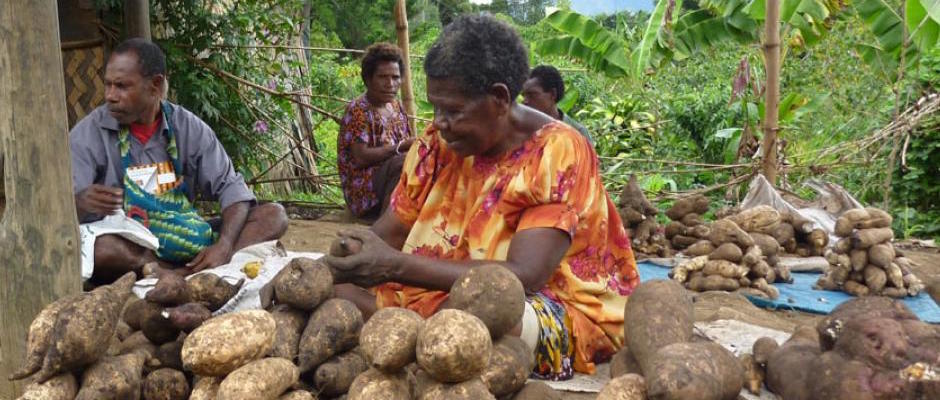
Cathy Tukne | Information Coordinator
Papua New Guinea (PNG) stands at a crossroads. For decades, its development narrative has been dominated by resource extraction gold, copper, oil, gas, timber, and palm oil, promising prosperity but delivering inequality. While foreign corporations profit, most Papua New Guineans remain marginalized, their environments scarred, and their futures uncertain.
The report, From Extraction to Inclusion, co-authored by ACT NOW!, Jubilee Australia, and the Oakland Institute, exposes this broken system and demands a radical shift, one that prioritizes people over profits.
The Broken Promise of "Progress"
Since independence in 1975, PNG has welcomed multinational companies, hoping their investments would bring jobs, infrastructure, and improved livelihoods. Instead, extractive industries- mining, logging, and oil palm - operate as enclaves, disconnected from the broader economy. They contribute little to public revenues while leaving behind environmental destruction and social upheaval.
Dr. Luke Fletcher, the report’s lead author, states plainly: “PNG has allowed some of the world’s largest corporations to exploit its resources, yet the promised benefits ‘better lives, stronger communities’ have failed to materialize.”
Land and People Under Siege
The environmental toll is devastating. PNG hosts the world’s third-largest rainforest, a biodiversity hotspot critical to millions. Land sustains the livelihood of the people of Papua New Guinea. Yet illegal logging and palm oil plantations have decimated vast areas, stripping communities of food, medicine, and cultural heritage.
Mining has brought poisoned rivers, barren soil, and ruined farmland. Frederic Mousseau of the Oakland Institute warns: “The true cost of extraction is paid by the people, through lost livelihoods, polluted water, and broken promises.”
Silenced Voices, Ignored Rights
When local communities try to stand up against mining or logging projects, they often face scary consequences. Companies might pressure them into agreeing by making false promises about jobs. And if people speak out against these projects? They can face threats, violence - sometimes from police, sometimes from company security guards.
This is not just an economic issue; it is a matter of justice. The right to say no, to protect ancestral land, and to determine their own future has not been upheld.
At the core of this report stands a powerful truth: PNG’s greatest wealth lies not in its resources, but in its people.
Eddie Tanago of ACT NOW! captures this vision: “Our true assets are our people, our customary land, our farming knowledge, and our stewardship of the environment. These are the foundations of a sustainable future.”
The report calls for urgent action:
Protect Customary Land: Land is identity, livelihood, and heritage. Strengthen indigenous land rights.
Stop New Extraction Projects: Redirect focus toward sustainable, community-led development.
Ban Raw Log Exports: Process timber locally to create jobs and add value.
Invest in Small-Scale Agriculture: Support local farmers with policies that ensure food security and environmental protection.
Empower Local Communities: Ensure meaningful participation in resource management decisions.
The Time for Change is Now
The people of PNG are strong, resourceful, and deeply connected to their land. The good news is that change can happen. By using these strengths, the country can create a just and fair future.
PNG’s leaders face a choice: keep benefiting foreign corporations or build a future that's fair and sustainable for everyone.
Every day, more forests fall, more rivers are poisoned, and more communities are displaced. The choice is clear: extraction or inclusion.
The future of Papua New Guinea hangs in the balance.
Download From Extraction to Inclusion [here]
